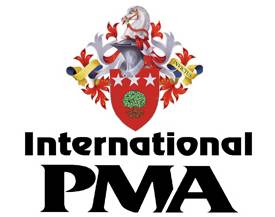Business Marketing
Course Aims
- To provide the student with relevant competencies and marketing skills to enable them to develop appropriate marketing strategies to satisfy and improve customer relationships
- To design and implement marketing strategies to achieve competitive advantage for their organisation
Learning Outcomes
At the end of the course the student will have the ability to:
- Analyse the marketing environment
- Develop a range of marketing options taking into account product, service, branding, and product positioning
- Utilise the range of marketing techniques to analyse, develop and implement marketing activities
- Utilise new technology and new methods of marketing including e-commerce
- Ensure that new product / service development activities are effectively managed
Course Syllabus
- Understanding Marketing and the Marketing Process
- Managing Customer Relationships.
- Business and Marketing Strategy
- The Marketing Environment
- Marketing Ethics
- Identifying and Developing Marketing Opportunities
- Developing Competitive Advantage
- Marketing Research and Information Systems
- Consumer Markets and their buyer behaviour
- Industrial Markets and their buyer behaviour
- Managing Marketing Information
- Market Segmentation and Positioning
- Marketing Analysis
- Developing the Marketing Mix
- Product, Services, and Branding Strategies
- Product Life-Cycle Strategies
- Pricing approaches and strategies
- Marketing Channels and Supply Chain Management
- Retailing and Wholesaling
- Marketing Communications
- Marketing Communication Strategy.
- Advertising, Sales Promotion, and Public Relations
- Personal Selling and Direct Marketing
- New Product Development
- Process of New Product Development
- Marketing – The Future
- Online Marketing
- E-Commerce
- Globalisation
Recommended Text
Book Title -:Principles of Marketing(10e)
Author -: Philip Kotler, Gary Armstrong
Publisher -: Prentice Hall
ISBN No -: 0-13-101861-2
Entrepreneurship
Course Aims
- To enable the student to have the necessary skills and competencies to start and operate his/her own business
- To integrate all the skills and knowledge acquired from the study of the other subjects within this Diploma of Management
Learning Outcomes
At the end of the course the student will have the ability to:
- Define and evaluate the feasibility of his/her business idea, product or service
- Develop a working and effective Business Plan
- Implement a marketing and business strategy to achieve the Business Plan
- Control and Manage the new business profitably
Course Syllabus
- The Challenge of Entrepreneurship
- The Foundations of Entrepreneurship
- The Nature and Importance of Entrepreneurs
- The Individual Entrepreneur
- Inside the Entrepreneurial Mind: From Ideas to Reality
- Creating and Starting the New Venture
- Researching the Venture’s Feasibility
- Building the Business Plan
- Planning the Venture
- Strategic Management and the Entrepreneur
- Forms of Ownership and Franchising
- Buying an Existing Business
- Financial Aspects of the Business Plan
- Advertising and Pricing for Profit
- Managing Cash Flow
- Creating a Successful Financial Plan
- Implementing the Business Plan
- Financing the Venture
- Sources of Funds; Debt and/or Equity
- Risk Capital and Venture Capital
- Managing Growth
- Preparing the New Venture Launch
- Managing Early Growth
- Expansion Strategies and Issues
- Going Public
- Planning for Management Succession
- E-Commerce and the Entrepreneur
Recommended Text
Book Title -:Essentials of Entrepreneurship and Small Business Management(3e)
Author -: Thomas W. Zimmerer Norman M. Scarborough
Publisher -: Prentice Hall
ISBN No -: 0-13-017280-4
Additional Reading
Book Title -:Entrepreneurship in Action(2e)
Author -: Mary Coulter
Publisher -: Prentice Hall
ISBN No -: 0-13-101101-4
Book Title -:Entrepreneurship with PowerWeb
Author -: Robert Hisrich Michael Peters
Publisher -: McGraw Hill
ISBN No -: 0072536209
Corporate Law
Course Aims
- To provide the student with the skills and knowledge to incorporate and manage a Company to comply with the statutory requirements of the relevant Company Acts
Learning Outcomes
At the end of the course the student will have the ability to:
- Understand the legal requirements for incorporating a Company
- Comply with the requirements of the Company Acts
- Discuss the roles and responsibilities of Company Directors
- Appreciate the difference between Company ownership and Management
- Deal with liquidation, amalgamations and capital restructuring
Course Syllabus
- Fundamentals of Company Formation
- The Nature of a Company
- Promotion and Incorporation
- The Memorandum of Association
- The Articles of Association
- The Company and its Contracts
- Capital Structure
- The Capital of a Company
- Company Distributions
- Floating the Company
- Shares and Shareholders
- Types and Characteristics of Shares
- The Transfer and Transmission of Shares
- Payment for Shares
- Insider Dealing
- Membership – Capacity, Registration, Substantial and Nominee Holdings, Annual Return
- Minority Protection
- Directors
- Financial Arrangements with Directors
- Fair Dealing by Directors
- The Duties of Directors
- Vacation of Office
- Disqualification and Personal Liability of Directors
- Company Management
- Meetings and Resolutions
- Debentures and Charges
- Accounts and Audit
- Amalgamations
- Amalgamations
- Reconstructions
- Take-Overs
- Corporate Insolvency
- Company Rescue
- Receivers and Administrative Receivers
- Winding-Up
Recommended Text
Book Title -:Business Law
Author -: Rush & Ottley
Publisher -: Thomson
ISBN No -: 13 978-1-84480-173-2
Management Accounting
Course Aims
- To enable the student to have a greater awareness of costs and costing systems and their impact on management decision making
- To appreciate how Management Accounting techniques and analysis may be applied to improve the efficiency and profitability of the business
Learning Outcomes
At the end of the course the student will have the ability to:
- Analyze the financial performance of the Business
- Advise management on different approaches to costing and decision making
- Review Investment decisions
- Analyze and advise management on pricing and profitability
Course Syllabus
- Managerial Accounting & the Business Organization
- Accounting and Decision Making
- Management Accounting in Service and Nonprofit Organizations.
- Cost-Benefit and Cost Behaviour
- The Management Process
- Budgets and Performance Reports
- Planning and Control for Product Life Cycles and the Value Chain
- Cost-Volume Relationships
- Costing
- Costs, and Cost Drivers
- Comparison of Variable and Fixed Costs
- Cost-Volume-Profit Analysis
- Measurement of Cost Behavior
- Management Influence on Cost Behavior
- Methods of Measuring Cost Functions
- Activity-Based Costing
- Cost Allocation
- Allocation of Service Department Costs
- Relevant Costs and Decision Making
- Special Orders
- Deletion or Addition of Products, Services
- Optimal Use of Limited Resources
- Pricing Decisions
- Role of Costs in Pricing Decisions
- Opportunity, Outlay, and Differential Costs
- Make-or-Buy Decisions
- Joint Product Costs
- Job-Costing Systems
- Process-Costing Systems
- Planning Systems
- Budgets and the Organisation
- The Master Budget
- Sales Forecasting
- Financial Planning Models
- Flexible Budgets
- Variance Analysis
- Causes of Variances
- Flexible-Budget Variances
- Overhead Variances
- Control Systems
- Designing Management Control Systems
- Measurement of Financial and Non Financial Performance
- Transfer Pricing as Management Control
- Return on Investment
- Capital Budgeting
- Discounted-Cash-Flow
- Sensitivity Analysis and Risk Assessment
- Capital Budgeting and Inflation
Recommended Text
Book Title -:Introduction to Management Accounting (13e)
Author -: Horngren et al.,
Publisher -: Prentice Hall
ISBN No -: 0-13-127307-8
Advanced Management Practice
Course Aims
- To introduce to the student a practical perspective to the issues and processes that contributes to effective management
- To integrate the skills and knowledge acquired from the study of the other subjects in the Advanced Diploma
Learning Outcomes
At the end of the course the student will have the ability to:
- Develop systems for effective management and enhancing value for the organisation
- Integrate Information Technology into the decision making process of the organisation
- Conduct Business Process Re-engineering activities for enhancing management and organisational performance
- Implement Quality management principles into the operations of the business
Course Syllabus
- Value
- Shareholder and customer Value
- Enhancing value for the organisation
- The Value chain and Competitive Advantage
- Business Process Reengineering
- The Organisation as a System
- Operations Management
- Business Processes
- Framework of Business Process Reengineering
- Knowledge Management
- Sharing Knowledge
- Enterprise Knowledge Systems
- Introduction to Artificial Intelligence and Expert Systems
- Neural Networks
- Total Quality Management
- Basic Concepts of Quality Management
- Organisational assessment of Quality
- Quality Improvement and Cost Reduction
- Quality Control Process and Techniques
- Process Management
- Organising for Quality
- Quality Assurance
- Logistics Management
- Specifications for Supplier Quality
- Supplier Selection
- Assessment of Suppliers
- Supply Chain Quality planning, control and improvement
- Relationship Marketing
- Marketing in a changing environment
- Developing a Quality strategy in customer processing
Recommended Text
Book Title -:Quality Planning and Analysis(4e)
Author -: Frank M. Gryna
Publisher -: McGraw Hill
ISBN No -: 0-07-118166-0
Additional Reading
Book Title -:Understanding Business: Processes
Author -: David Barns
Publisher -: Routledge
ISBN No -: 0-415-23862-5
Managing People
Course Aims
- To enable the student to have the requisite foundation for the study of human behavior in the work setting
- To appreciate the importance of effective people management for improving the performance of the organisation
Learning Outcomes
At the end of the course the student will have the ability to:
- Create an effective work environment to improve productivity and job satisfaction
- Instill into the organisation a performance and quality culture
- Improve leadership qualities and effectiveness
- Create effective work teams
- Manage a multicultural workforce effectively
Course Syllabus
- Foundations of Organisational Behavior
- The need for effective People Management
- Challenges facing management today in People Management
- Disciplines contributing to Organisational Behavior Studies and Research
- The Individual
- Values
- Attitudes
- Personality
- Emotions
- Perception
- Motivation
- Historical Theories
- Content Theories
- Process Theories
- Behavior Modification
- Implementing Practical Motivational Programmes
- The Group
- Group Classification
- Group Development, structure and processes
- Group Decision Making
- Creating effective work groups and teams
- Group Think
- Workforce Diversity
- Leadership
- Theories of Leadership
- Trait Theories
- Behavioral Theories
- Contingency Theories
- Leadership Effectiveness
- Power and Politics
- The Bases of Power
- Organisational Conflict
- Definition of conflict
- Functional and Dysfunctional Conflict
- The conflict process
- Negotiation
- Organisational Culture
- Creating and sustaining culture
- Creating an ethical organisational culture
- Work Design
- Work Analysis
- Theories of Job Design
- Job Characteristics Model
- Job Redesign
- Job Rotation
- Job Enrichment
- Job Enlargement
- Impact of Information Technology on Job Design
Recommended Text
Book Title -:International Human Resource Management: Managing People in a Multinational Context (4e)
Author -: Dowling & Welch
Publisher -: Thomson
ISBN No -: 13 978-1-84480-013-1


